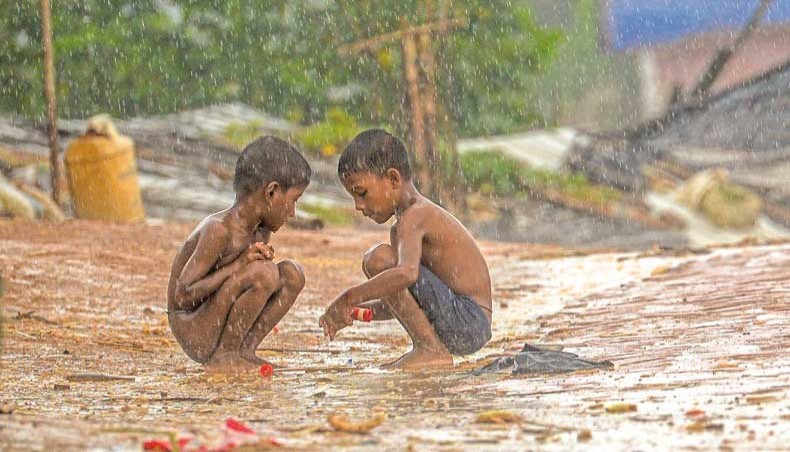UN panel for trial of Myanmar military
The Bangladesh government and the UNHCR would continue to determine voluntariness of Rohingya families for sending them back to Rakhine, when UN experts are stressing the need for holding Myanmar military officials accountable for the atrocities they committed.
‘The process of interviewing prospective returnee families would continue on Sunday and if any family agrees to go to Myanmar we would send them,’ refugee, relief and repatriation commissioner Mohammad Abul Kalam told New Age on Saturday, according to our correspondent in Cox’s Bazar.
‘We would also keep all kinds of arrangements ready for repatriation,’ he said.
A section of officials have, however, expressed doubt about the continuation of the process of assessing voluntariness of Rohingyas as the situation in their camps was a bit tense.
The forcibly displaced people were staging demonstration demanding accountability for the atrocities committed on them in Rakhine of Myanmar since August 25, 2017.
Related Coverage:
- › Rohingyas offer special prayers to go home
- › Sexual violence means Rohingyas can’t return to Myanmar: UN
- › No Rohingya shows up for return to Myanmar
This Sunday marks two years since the Myanmar military, the Tatmadaw, launched a campaign of terror against the country’s long-persecuted minority Rohingya community in Rakhine in the name of ‘clearance operations’.
The UN independent international fact finding mission told an informal meeting of the UN Security Council on Friday that there would be no return of Rohingya people and no long-term peace in Myanmar unless there was accountability for the brutality of the military of the country.
Radhika Coomaraswamy, a Sri Lankan lawyer who is one of the three-member mission, said at the UNSC that a domestic judicial process ‘is not possible at this time’ in Myanmar.
‘We therefore need an international mechanism of process,’ she said, according to international news agencies.
‘There’s a danger to the victims and witnesses, as they have been threatened, and we feel that the Commission of Inquiry set up by the Myanmar government may face the same challenge,’ she said.
She pointed to seven soldiers in Myanmar who were sentenced to up to 10 years of rigorous imprisonment for the killings of 10 Rohingya villagers, but were released after just nine months ‘because of the national and political pressure’.
Coomaraswamy cited a number of options including having the UNSC refer the matter to the International Criminal Court, establishing an ad-hoc tribunal on Myanmar, or having countries with universal jurisdiction use it to deal with the plight of the Rohingya people who fled the military crackdown to Bangladesh.
In parallel, she said, through the Genocide Convention a demand can be made to the International Court of Justice for compensation and reparations to the Rohingyas.
‘It is our fervent belief there will be no meaningful return of Rohingya population, not sustainable and …no long-term peace, unless there is accountability and transformation of the Burmese military,’ she said using the former name of the country.
The UN commission has recommended that the top generals be prosecuted over the crackdown and that the governments and companies stop supporting the military-owned conglomerates and businesses that finance its operations.
Two attempts for sending back Rohingya people failed as none of the community showed up to return to Rakhine of Myanmar from Bangladesh on 22 August 2019 and 15 November 2018.
More than 7,00,000 Rohingyas, mostly women, children and aged people, entered Bangladesh after fleeing unbridled murder, arson and rape during ‘security operations’ by the Myanmar military in Rakhine, what the United Nations denounced as ethnic cleansing and genocide, beginning from August 25, 2017.
The latest Rohingya influx took the number of undocumented Myanmar nationals and registered refugees from that country in Bangladesh to about 11,16,000, according to estimates by UN agencies and Bangladesh foreign ministry.
News Courtesy: newagebd.net











